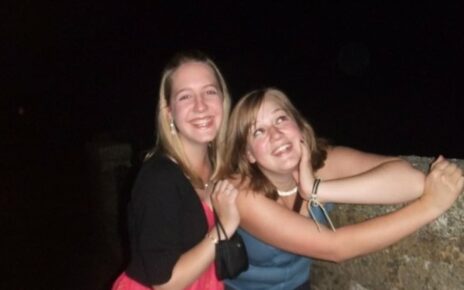ELVIS Presley made a chilling cry for help while he was being pushed to perform grueling tour dates despite his escalating drug addiction in the months before his death, the star's stepbrother has revealed.
In an exclusive interview, David E Stanley said his brother's manager Colonel Tom Parker – played by Tom Hanks in a new movie about the star – treated the iconic singer as a "product" and took little care of his well being.



It comes as Baz Luhramnn's new biopic Elvis – out on Friday – explores the complicated dynamic between Elvis and his infamous manager.
David, who worked for the King from the age of 16 as bodyguard and tour manager, saw first hand how an increasingly desperate and drug dependent Elvis would question his exhausting schedule.
"He would go on stage weighing 255 lbs and do 20 shows in 20 nights," David told The Sun.
"He'd be exhausted, frustrated and said to me beforehand, 'What are we doing here? Why are we here?'
"I was there when Elvis enjoyed the great moments – the 1969 Vegas and 1972 tour film.
"But Elvis in 76 and 77 had no business being on stage – he should have been in rehab. He should have been pushed to get it together.
"Nobody could stop an addict but what kind of manager puts him on the road?"
David recalled how Elvis's drug habits spiraled out of control in the last two years before his August 16, 1977 death – as he felt controlled and trapped by his Parker.
Most read in US News
WHERE IS SHE? 
Haunting clue in mystery disappearance of postal worker as new video emerges

Police 'had 8 chances to save rape victim tortured for MONTHS by ex-cop'

Shock twist after video reveals how six-year-old boy's face caught FIRE

Plane carrying 100 passengers on fire after crash-landing at Miami airport
He claimed Parker dashed Elvis's hopes of doing a European tour, as well as turning down movie offers and huge deals in Saudi Arabia and Australia – in favor of playing cost effective US gigs, pushing him to perform until June 26, 1977, just weeks before his death.
SELF DESTRUCTIVE
Elvis would knock back packs of pills to ward off depression, stress and angst at how his career was suffering, his body was breaking down and mind was "burned out", David said.
A Memphis coroner and medical probe found Elvis was prescribed an incredible 8,805 pills and injectable drugs, including powerful painkillers taken at a rate only common in terminally ill cancer patients.
Drugs seemed to be his only faithful friend.
"He was totally in denial," David, now an author and filmmaker, said.
"But by then drugs seemed to be his only faithful friend.
"I cannot tell why he self destructed. That is a mystery – because it went from use to abuse.
"At the end of his life, he was taking 33 sleeping pills and nine shots of Demerol just to sleep in a 24 hour span. And as well topping up on things like amphetamines, codeine, morphine, diazepam and Placidyl.
'HE FELT CAGED'
"I would not go down the path of saying Colonel drove him to the drugs.
"Elvis killed Elvis. But Elvis definitely felt he was caged and held back by the Colonel, which impacted his mindset."
David recalls how he witnessed Elvis's drug habits slowly escalate over the years.
"When I first saw him taking medications I thought he needed them and was not out of control during the early 70s," David said.
"But then over time I see him upping sleeping pills from two to four..and more and more. 1972, 73 and 74 he was holding it together and thought doctors told him it was okay.
"But by 75 he was losing his way and then it got out of control. I knew he was taking too many Quaaludes and Placidyls."
David feels that he had he hung on to his life in the late 70s, the advances in drug rehabilitation treatments could have saved him.
'HE NEEDED HELP'
And he said humble Elvis would be shocked that he could still be such a big star even decades after his death.
"The Betty Ford clinic and facilities like that with specialists would have been able to help him," he said.
"Had they been around when he was enduring his addictions then he would be alive.
"When I went to work for Elvis, aged 16, he didn't cuss, drink, smoke, take drugs and he loved his mum, Priscilla and his kids."
"He just needed to recall what he could be without the drugs.
"When I went to work for Elvis, aged 16, he didn't cuss, drink, smoke, take drugs and he loved his mum, Priscilla and his kids.
“Elvis was unique. He was a good American boy made good, he served his country, loved his mother and was spiritually driven.
“He changed the world with rock and roll. People in America look at him as the American dream
“I do not think Elvis would comprehend that he could still be this big, even if he was alive."
NEW MOVIE
David has spent the last four decades speaking about his older brother around the world and is re-releasing his own film Protecting the King about his last five years "from the moments of glory to the tragic demise".
He also wrote a book called My Brother Elvis The Final Years which gives a candid glimpse at his life with Elvis and his self destructive demise.
Now David says he hopes the new Baz Luhrmann movie, starring Austin Butler as the King of Rock and Roll, helps Elvis's stars to "shine again".
"I I hope that this new movie is great," he said.
"I could not be more proud to be Elvis's brother and they made a movie.
"I am hoping that is entertaining and revealing and that the superstar shines again and his talent beams.
"I know Priscilla admitted that she thought it was like seeing him there again, but as great as it is it will never be like watching Elvis doing it in front of me.
Read More On The Sun

Kim & Kanye headed for trial as volatile rapper is still stalling divorce

7 critical mysteries in Gabby Petito case that could be answered in court
"I just hope that it's as good Priscilla says."
The Sun reached out to the Elvis Presley Charitable Foundation at Graceland for comment.




Source: Read Full Article

